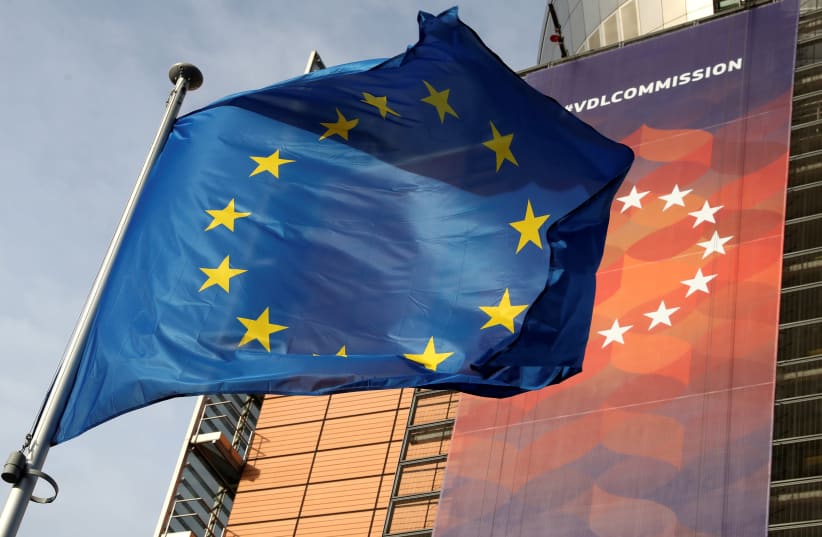On Sunday, European Commission President Ursula von der Leyen said that vaccinated Americans will soon travel freely to EU countries. Does this mean that Israelis will be able to do the same? Likely, the answer is yes.
“The Americans, as far as I can see, use European Medicines Agency-approved vaccines,” von der Leyen pointed out while speaking with The New York Times. “This will enable free movement and the travel to the European Union.”
“Because one thing is clear: All 27 member states will accept, unconditionally, all those who are vaccinated with vaccines that are approved by EMA,” the president added.
Von der Leyen did not provide any details regarding a specific timeline but did highlight that the development will be influenced by the epidemiological situation.
A spokesperson for the Commission’s office told The Jerusalem Post that the Commission is currently preparing a proposal to amend the recommendation on travel restrictions in order to take into account the most recent developments. A draft has already been submitted to member states for discussions.
While the spokesperson refrained from entering into the specifics about Israel or other countries, there are several reasons to believe that when decisions will be made, Israel will benefit from them.
First of all, Israelis have also been vaccinated with a vaccine recognized by the EMA – the Pfizer vaccine. In addition, the country’s coronavirus data has been more encouraging than in most if not all the EU members. As of Monday, there were only 1,700 active cases in the country.
An Israeli government official told the Post that Jerusalem has been in conversation with Brussels about the issue, which puts Israel in a better position than other non-European nations. In a press briefing on Monday following von der Leyen’s remarks, a EU spokesperson said that while there are advanced talks between the EU and the US government on the topic, no dialogue whatsoever has been initiated with the UK. The UK left the EU at the end of 2020 after 47 years.
It is important to remember that the final decision on how to manage their borders especially with non-European nations lies on the member states.
Some EU members – such as Greece – have already allowed Israeli tourists to enter their borders for non essential travel. Greece does not require them to quarantine as long as they are vaccinated, recovered or present a negative coronavirus test.
These members – which traditionally receive important influxes of tourists from Israel – might help to open up the doors to the rest of the EU.
Earlier this month, European Union member states agreed to launch COVID-19 travel passes that would permit people who have been vaccinated against the disease, recovered from an infection or have tested negative to travel more easily.
The fact that Israel has already been using a similar pass, and was the first country in the Western world to do so, is also likely to help.
Finally a question remains regarding reciprocity. While Greece, Cyprus and other countries in the world have accepted vaccination documents from Israel without demanding mutual recognition, it is likely that other nations will want similar guarantees.
For this purpose, Israel has been in negotiation with several countries for weeks. However, health officials have been hesitant to move forward due to concerns over forgeries and lacking the ability to verify the authenticity of the documents.
The first official development in the field happened last week, when Israel announced that it would recognize vaccination certificates from Bahrain.
On May 23 vaccinated tourists will start to be allowed in the country for the first time in over a year. According to the outline presented by the Health and Tourism ministers, in the first phase only visitors traveling in groups will be accepted, and they will be required to undergo a serological test and prove the presence of antibodies in their blood. However, a government official said that mutual recognition of vaccination certificates with some countries could happen before that.
Meanwhile, only 77 cases were identified in Israel on Sunday. The number marked the second day in a row that less than 100 cases were identified, something that had not happened since May, although the numbers are influenced by the low amount of tests administered and processed during the weekend compared to regular weekdays – 9,000 on Saturday and 31,000 on Sunday, compared to over 45,000.
Moreover, only three people have succumbed to the virus since Thursday. At the peak of the pandemic, in January, Israel was registering dozens of deaths every day.
